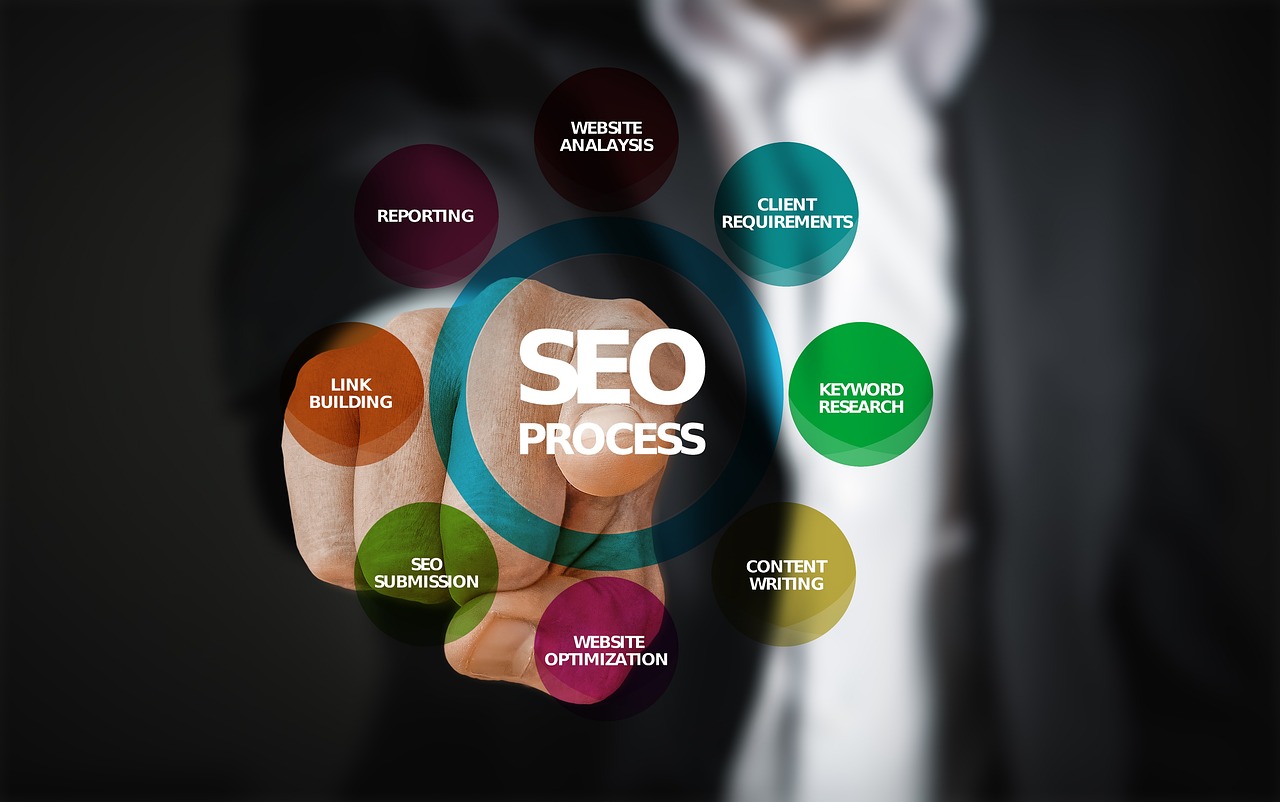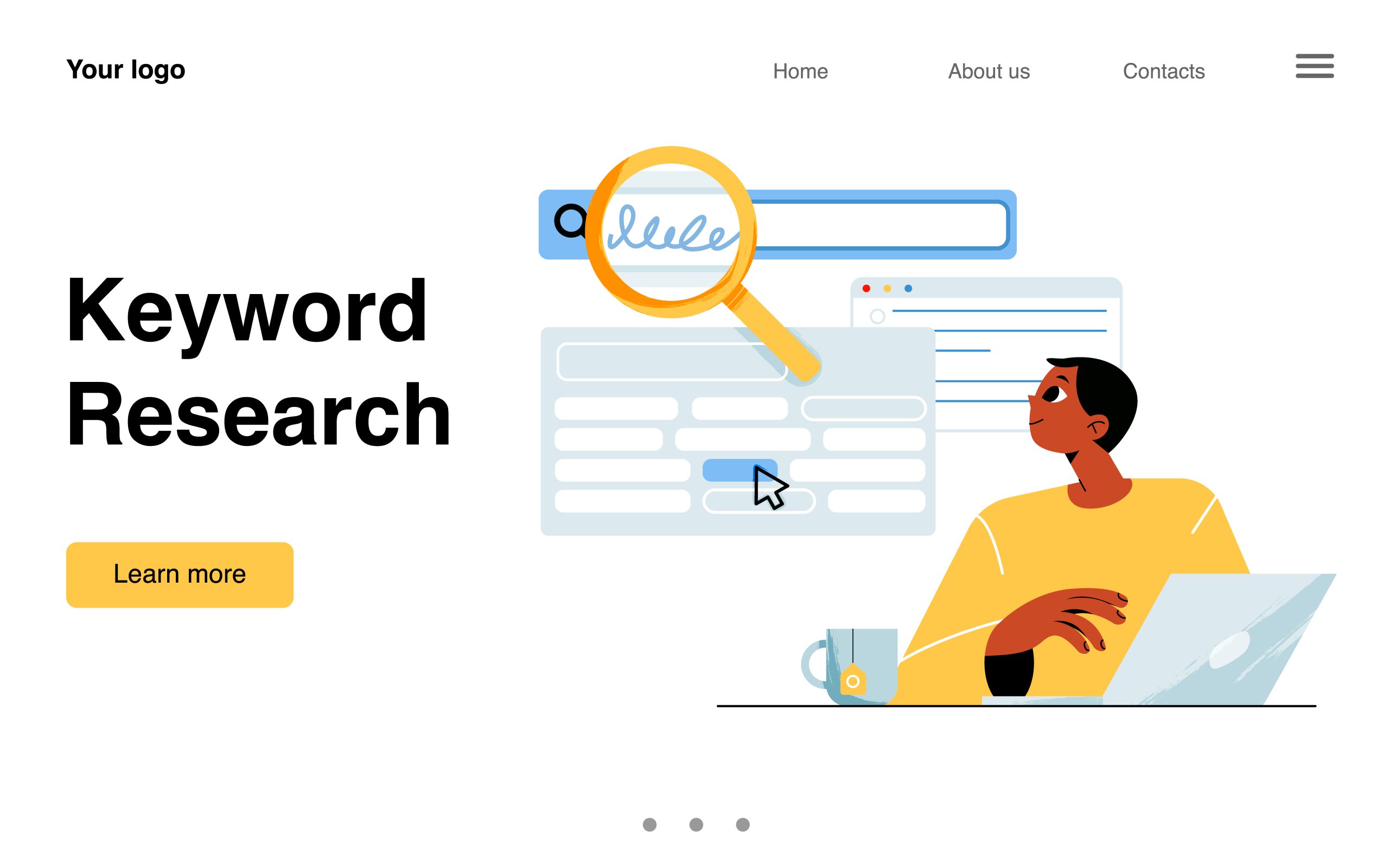SEO vs. PPC: Which Comes First?
You need traffic, but which path should you take?
The organic build of SEO or the targeted reach of PPC?
The debate between search engine optimisation and pay-per-click advertising continues to be pivotal for businesses aiming to improve online visibility.
Here's the hard truth: 75% of individuals NEVER go beyond page one of search results.
This underscores the critical importance of mastering your approach to search engine marketing.
But, again, where do you begin? Should you prioritise the organic growth of SEO or the reach of PPC?
Let's delve into the intricacies of SEO and PPC, examining their workings, merits, and when to prioritise one over the other.
SEO: How Does It Work and When to Use

SEO is a multifaceted approach to improve a website's visibility in organic (non-paid) search engine results. By optimising various elements of a website and aligning them with search engine algorithms, SEO endeavours to enhance the website's relevance and authority about specific search queries. The ultimate goal of SEO is to drive organic traffic to the website, enhance brand visibility, and ultimately, generate valuable leads and conversions over time.
Businesses across all sectors can benefit from implementing robust SEO strategies. Small businesses seeking to establish a local presence can leverage local SEO tactics to ensure their visibility in geographic-specific searches.
For example, a local bakery can witness a substantial increase in foot traffic and online orders by optimising its website for local search terms such as "best bakery near me" or "artisanal pastries [city name]." Appearing prominently in local search results allows the bakery to attract nearby customers actively seeking its products or services.
Similarly, e-commerce platforms can harness the power of SEO to expand their customer base and drive sales. For instance, an online store specialising in handmade jewellery can capitalise on specific keywords related to its products, such as "handcrafted silver necklaces" or "artisan gemstone rings." By optimising product pages, meta descriptions, and other on-page elements for these targeted keywords, the e-commerce site can improve its visibility in relevant search results and attract potential buyers interested in unique, artisanal jewellery pieces.
Real SEO case studies serve as compelling evidence of the efficacy of SEO practices in driving tangible business results. For example, a local photography studio implemented a comprehensive SEO strategy that included optimising its website structure, creating high-quality content, and building authoritative backlinks.
As a result, the studio witnessed a significant increase in organic traffic, leading to a surge in inquiries and bookings for photography sessions. Similarly, an online clothing retailer achieved top rankings in search engines by optimising its product descriptions, implementing schema markup, and consistently publishing relevant blog content. This improved visibility translated into a substantial boost in website traffic and sales revenue for the retailer.
Overall, SEO is not just a marketing tactic but also a long-term investment in the online visibility and success of a business, including its presence in Google Ads. Employing effective SEO strategies tailored to specific goals and target audiences enables businesses to boost their digital presence, attract qualified leads, and drive sustainable growth and profitability.
PPC: How Does It Work and When to Use

Unlike organic search results, which rely on SEO tactics, PPC campaigns provide immediate visibility by allowing businesses to bid for ad placement on search engine results pages (SERPs) or various digital platforms. This method offers unparalleled control and flexibility, enabling advertisers to tailor their campaigns to specific audiences based on demographics, interests, behaviours, and geographical locations.
PPC campaigns typically operate within a structured framework. Advertisers create ad copies and select relevant keywords or phrases that trigger their ads to appear when users search for related terms. Advertisers then set a bid amount, indicating the maximum they are willing to pay for each click on their ad. The ad auction process takes into account bid amounts, ad quality, and other factors to determine ad placement on SERPs or partner websites.
One of the primary advantages of PPC advertising is its immediacy. Unlike SEO efforts, which may take time to gain traction and see measurable results, PPC campaigns can start driving traffic to a website almost instantly. This makes PPC an ideal choice for businesses looking to generate quick results, such as promoting limited-time offers, launching new products or services, or capitalising on seasonal trends.
Moreover, PPC provides a level playing field for businesses competing in highly competitive markets, allowing them to secure prominent ad placements for targeted keywords through strategic bidding strategies.
Case studies abound with examples of businesses achieving rapid success through well-executed PPC campaigns.
Established brands can leverage PPC advertising to amplify their marketing efforts during peak seasons or promotional periods. Allocating ad spend strategically and optimising ad performance based on real-time data insights allows brands to maximise their return on investment (ROI) and drive sales growth.
Whether boosting brand awareness, increasing website traffic, or driving immediate conversions, PPC advertising offers a versatile and results-driven approach to achieving business objectives.
In essence, PPC advertising empowers businesses to seize opportunities in the digital marketplace, capitalise on consumer intent, and drive measurable outcomes with precision and efficiency. By leveraging the immediacy and targeting capabilities of PPC campaigns, businesses can gain a competitive edge, expand their reach, and achieve their marketing goals effectively.
SEO vs PPC: So Which Comes First?
Deciding between SEO and PPC advertising requires a thorough assessment of several key factors, each playing a crucial role in determining the most suitable strategy for achieving your business objectives.
Budget is one of the primary considerations when weighing the merits of SEO versus PPC. SEO typically involves lower ongoing costs compared to PPC, as it doesn't require payments for each click or impression. Instead, SEO investments primarily involve upfront costs for website optimisation, content creation, and ongoing maintenance.
While PPC offers immediate visibility, it can be costly, particularly for highly competitive keywords where bidding wars can escalate ad costs. Therefore, businesses with limited budgets may find SEO to be a more sustainable and cost-effective option in the long run.
The timeframe is another critical factor to consider. SEO is renowned for its ability to deliver long-term benefits and sustainable growth, but it requires patience and ongoing effort to see significant results. It may take several months for SEO efforts to yield noticeable improvements in search engine rankings and organic traffic.
Conversely, PPC provides immediate results, with ads appearing on SERPs or other digital platforms as soon as campaigns are launched. This makes PPC an attractive option for businesses seeking quick wins or aiming to capitalise on time-sensitive opportunities.
Competition within your industry or niche also influences the decision between SEO and PPC. In highly competitive markets, achieving and maintaining top organic rankings through SEO can be challenging and time-consuming. PPC offers a more level playing field, allowing businesses to compete for ad placement based on bid amounts and ad relevance.
However, intense competition in PPC auctions can drive up ad costs, making it imperative for businesses to carefully monitor and optimise their campaigns to ensure a positive return on investment.
Furthermore, aligning your chosen strategy with your specific business goals is crucial. Investing in a results-driven SEO strategy is paramount if your objective is long-term brand building and sustainable traffic growth. SEO efforts focus on improving website visibility, authority, and relevance over time, ultimately driving organic traffic and conversions.
On the other hand, if immediate results are imperative or if you're targeting short-term objectives such as promoting a limited-time offer or launching a new product, a well-planned PPC strategy can deliver rapid outcomes and generate immediate traffic and leads.
Ultimately, the most effective approach often involves a combination of both SEO and PPC strategies. By leveraging the strengths of each tactic, businesses can maximise their online visibility, reach a broader audience, and achieve their marketing objectives more effectively. Integrating SEO and PPC allows businesses to diversify their marketing efforts, capitalise on immediate opportunities, and establish a strong foundation for long-term growth and success in the dynamic landscape of digital marketing.
Deciding between SEO and PPC depends on various factors such as budget, timeframe, competition, and business goals. SEO offers long-term benefits and sustainable growth but requires patience and ongoing effort to see significant results. PPC, on the other hand, delivers immediate traffic and results but can be costly, especially for highly competitive keywords.
It's essential to weigh the pros and cons of each strategy carefully. Investing in a results-driven SEO strategy is paramount if you're looking for long-term brand building and sustainable traffic growth, however, if you need quick wins, have a flexible budget, or want to complement your SEO efforts, a well-planned PPC strategy can yield excellent results. Ultimately, a combination of both SEO and PPC often proves to be the most effective approach, allowing businesses to maximise their online visibility and reach a broader audience.
Combining SEO and PPC: A Powerful Match
While SEO and PPC are often viewed as separate entities, integrating them can create a synergistic effect that amplifies results. By combining the strengths of both strategies, businesses can achieve greater visibility, increased traffic, and improved conversion rates.
Here are some actionable steps to leverage the power of SEO and PPC together:
Keyword Integration
Use insights from your PPC campaign to identify high-performing keywords and integrate them into your SEO strategy. This ensures alignment between your paid and organic search efforts, maximising your overall presence in SERPs.

Remarketing
Utilise PPC remarketing campaigns to re-engage users who have previously visited your website but didn't convert. Pair this with targeted SEO content to nurture leads and effectively guide them through the sales funnel.
Data Sharing
Consolidate data from both SEO and PPC campaigns to gain a comprehensive understanding of your audience's behaviour, preferences, and conversion patterns. This holistic approach enables informed decision-making and optimisation across all marketing channels.
Brand Consistency
Maintain consistency in messaging, branding, and user experience across SEO and PPC channels to reinforce brand identity and credibility. A cohesive marketing strategy fosters trust and encourages repeat engagement from users.
Conclusion
Which is better, SEO or PPC?
The choice between SEO and PPC isn't about picking one over the other but understanding how to leverage both effectively to achieve your business objectives. Whether you prioritise long-term organic growth with SEO or opt for immediate results with paid search ads, integrating these strategies can yield remarkable outcomes.
It's not a question of SEO versus PPC but how the two can work together synergistically to enhance your online visibility, drive targeted traffic, and maximise conversions. If you're ready to take your digital marketing efforts to the next level, consider partnering with experts who can help you with SEO and PPC ads and navigate the intricacies of SEO, PPC, and beyond.





